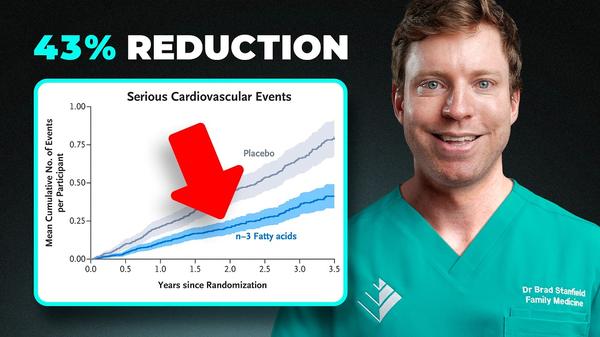
Why Omega-3 Supplements cause Heart Problems (unless you pay attention to THIS)
Physionic
Aug 21, 2024
Mindsip insights from this episode:
Limit omega-3 intake to reduce heart condition risks
Consuming multiple grams of omega-3s is likely getting into the upper threshold that increases the risk for certain heart conditions.
Balance omega-3 intake to minimize heart disease risk
The health effects of omega-3s likely follow a U-shaped curve, where consuming too little increases one type of heart disease risk, and consuming too much increases another.
Alter gene expression by incorporating omega-3s
In some model systems, exposure to omega-3s can change the gene expression of the very proteins that form ion channels by as much as 50%.
Understand how omega-3s can trigger arrhythmia
By making the cell membrane more fluid, omega-3s can cause ion channels to open more readily, letting in excess sodium and calcium which can prematurely activate heart cells.
Incorporate omega-3s to enhance heart cell membrane fluidity
Once incorporated into the cell membrane of heart cells, omega-3s change the fluidity of the membrane, making it less stiff.
Consume omega-3s to mitigate heart arrhythmia risk
The consumption of omega-3 fats is very likely causative to heart conditions like atrial fibrillation, where a part of your heart has an abnormal rhythm.
More from
Physionic
Dr. Casey Means: Eat like THIS to reduce your Risk of Metabolic Disease!
Ketosis (Fasting/Ketogenic Diet) accelerates Cancer Growth - New Study
Drain your Brain, Protect it from Alzheimer’s Disease
Dr. Casey Means: Stop Ignoring Your Health — Do These 5 Free Tests!
Soda & Cancer Death: The Link Found in Multiple Large Studies












